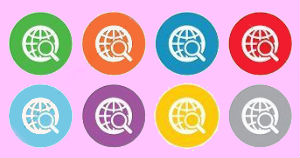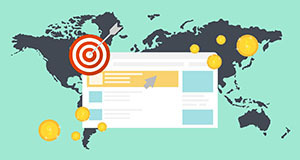As the internet becomes more ‘international’ each day, will the ability to hold onto one’s national language increase or decrease over time? And how would a nation be able to track this?
One possible solution may be to track how internet users link to and comment on major news outlets in the world. Using a tool such as MajesticSEO, who track the backlinks to every website on the planet, we can in fact track that sentiment day by day.
One of the reasons why I like Majestic is that they already have ranked the top million websites based on the number of sites linking to each site. This means that if a particular language begins to loose popularity over time, for instance, if a trend emerges that those who speak both English and Spanish increasingly favour reading and linking to Spanish news, the flagship news portals for those languages should increase in the rankings.
Whilst this could be construed at a rather crude measurement of the popularity of a language globally, the tool is backed up by the world’s largest commercially available Link Intelligence map on the planet.
Here are the relative strengths of some of the most notable news sites in different languages as of today:
With the data being updated several times a day, you can compare the above table to a base line of the 31st August 2011, where the number of referring domains were as follows:
1) NYTimes.com (global rank – 35)
2) CNN.com (global rank – 40)
3) News.BBC.co.uk (global rank – 73)
4) WSJ.com (global rank – 100)
5) AlJazeera.net (global rank – 530)
6) LeMonde.fr (global rank – 759)
7) Welt.de (global rank – 985)
8) Yomiuri.co.jp (global rank – 1,009)
9) ElMundo.es (global rank – 1,475)
10) CNTV.cn (global rank – 1,476)
Kristjan Mar Hauksson
Latest posts by Kristjan Mar Hauksson (see all)
- The rising need for linguistic adaptation - September 13, 2012
- International companies should embrace the hreflang tag - April 11, 2012
- Do you know what consumers expect from your brands? - November 2, 2011






Useful popping the baselines at the bottom of this post. Will be interesting in 6 months to see how langauges fare!